 W
WRichard Dodgshun Bedford, also known as Dick Bedford, is emeritus professor in human geography at Auckland University of Technology (AUT). He was the president of the Royal Society Te Apārangi from 2015 to 2018.
 W
WPaul Joseph Boyle, is a British geographer, academic, and academic administrator. He was the Vice-Chancellor of the University of Leicester between 2014 and 2019. He had been Professor of Human Geography at the University of St Andrews from 1999 to 2014, and Chief Executive of the Economic and Social Research Council (ESRC) from 2010 to 2014. He took over as Vice-Chancellor of Swansea University at the end of the 2018/2019 academic year.
 W
WJean Brunhes was a French geographer. His most famous book is La géographie humaine.
 W
WWalter Christaller, was a German geographer whose principal contribution to the discipline is central place theory, first published in 1933. This groundbreaking theory was the foundation of the study of cities as systems of cities, rather than simple hierarchies or single entities. He was primarily concerned with the urban space and worked on the role of towns as geographic-economic units, besides analyzing the relationships between towns of the same region.
 W
WDenis Edmund Cosgrove was a distinguished British cultural geographer and Professor of Geography at the University of California, Los Angeles. Before this, he was Professor of Human Geography and Dean of the Graduate School at Royal Holloway, University of London. In 1998, he received the prestigious Back Award from the Royal Geographical Society.
 W
WJovan Cvijić was a Serbian geographer and ethnologist, president of the Serbian Royal Academy of Sciences and rector of the University of Belgrade. Cvijić is considered the founder of geography in Serbia. He began his scientific career as a geographer and geologist, and continued his activity as a human geographer and sociologist.
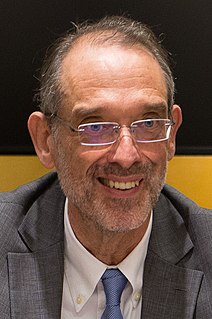 W
WHeinz Faßmann is an Austrian politician and professor of human geography and land-use planning at the University of Vienna. He is serving as the Minister of Education in the Second Kurz cabinet in the government of Chancellor Sebastian Kurz and served in the same capacity from December 2017 to June 2019. Faßmann is considered to be aligned with the Austrian People's Party (ÖVP) but holds no formal party membership or affiliation.
 W
WTorsten Hägerstrand was a Swedish geographer. He is known for his work on migration, cultural diffusion and time geography.
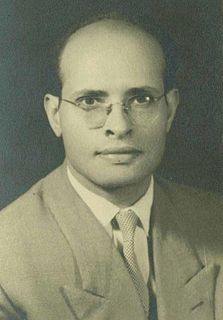 W
WGamal Hamdan was an Egyptian scholar and geographer. Among his most prominent books are The Character of Egypt, Studies of the Arab World, and The Contemporary Islamic World Geography, which form a trilogy on Egypt's natural, economic, political and cultural character and its position in the world.
 W
WDavid W. Harvey is a British-born Marxist economic geographer and Distinguished Professor of anthropology and geography at the Graduate Center of the City University of New York (CUNY). He received his PhD in geography from the University of Cambridge in 1961. Harvey has authored many books and essays that have been prominent in the development of modern geography as a discipline. He is a proponent of the idea of the right to the city.
 W
WHarriet Hawkins is a British cultural geographer. She is Professor of Human Geography at Royal Holloway, University of London, where she is the founder and Co-Director of the Centre for Geo-Humanities, and the Director of the Technē AHRC Doctoral Training Partnership. As part of Research Excellence Framework 2021, she is a member of the Geography and Environmental Studies expert sub-panel. In 2016, she was winner of a Philip Leverhulme Prize and the Royal Geographical Society Gill Memorial Award. In 2019, she was awarded a five-year European Research Council grant, as part of the Horizon 2020 research and innovation programme. She was previously the Chair of the Royal Geographical Society Social and Cultural Geography Research Group.
 W
WIgnace Xavier Morand Hommaire de Hell, often known as Xavier Hommaire de Hell, was a French geographer, engineer and traveller who carried out research in Turkey, southern Russia and Persia.
 W
WFriedrich Wilhelm Heinrich Alexander von Humboldt was a German polymath, geographer, naturalist, explorer, and proponent of Romantic philosophy and science. He was the younger brother of the Prussian minister, philosopher, and linguist Wilhelm von Humboldt (1767–1835). Humboldt's quantitative work on botanical geography laid the foundation for the field of biogeography. Humboldt's advocacy of long-term systematic geophysical measurement laid the foundation for modern geomagnetic and meteorological monitoring.
 W
WKelvyn Jones, is a British professor (Emeritus) of human quantitative geography at the University of Bristol. He focuses on the quantitative modeling of social science data with complex structure through the application of multilevel models; especially in relation to change and health outcomes.
 W
WPyotr Alexeyevich Kropotkin was a Russian anarchist, socialist, revolutionary, economist, sociologist, historian, zoologist, political scientist, human geographer and philosopher who advocated anarcho-communism. He was also an activist, essayist, researcher and writer.
 W
WThe following is a list of notable human geographers.
 W
WSir Halford John Mackinder was an English geographer, academic and politician, who is regarded as one of the founding fathers of both geopolitics and geostrategy. He was the first Principal of University Extension College, Reading from 1892 to 1903, and Director of the London School of Economics from 1903 to 1908. While continuing his academic career part-time, he was also the Member of Parliament for Glasgow Camlachie from 1910 to 1922. From 1923, he was Professor of Geography at the London School of Economics.
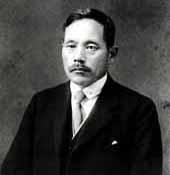 W
WTsunesaburō Makiguchi was a Japanese educator who founded and became the first president of the Sōka Kyōiku Gakkai, the predecessor of today's Soka Gakkai.
 W
WDoreen Barbara Massey FRSA FBA FAcSS was a British social scientist and geographer.
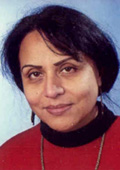 W
WAparna Rao was a German anthropologist who performed studies on social groups in Afghanistan, France, and some regions of India. Her doctorate studies focused on anthropogeography, ethnology, and Islamic studies. Rao taught anthropology at the University of Cologne, serving for a brief time as chair of the Department of Ethnology at the South Asia Institute of Heidelberg University, Germany.
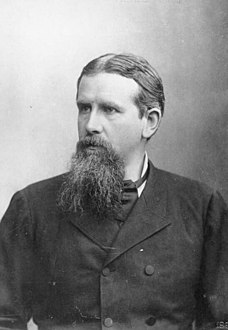 W
WFriedrich Ratzel was a German geographer and ethnographer, notable for first using the term Lebensraum in the sense that the National Socialists later would.
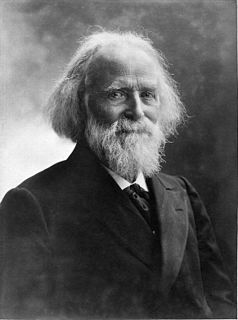 W
WJacques Élisée Reclus was a renowned French geographer, writer and anarchist. He produced his 19-volume masterwork, La Nouvelle Géographie universelle, la terre et les hommes, over a period of nearly 20 years (1875–1894). In 1892 he was awarded the Gold Medal of the Paris Geographical Society for this work, despite having been banished from France because of his political activism.
 W
WCarl Ritter was a German geographer. Along with Alexander von Humboldt, he is considered one of the founders of modern geography. From 1825 until his death, he occupied the first chair in geography at the University of Berlin.
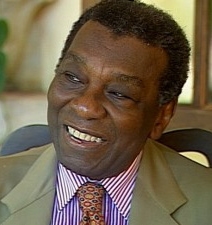 W
WMilton Almeida dos Santos was a Brazilian geographer and geography scholar who had a degree in law. He became known for his pioneering works in several branches of geography, notably urban development in developing countries. He is considered the father of critical geography in Brazil. Santos was a recipient of the Vautrin Lud Prize, often seen as geography's equivalent of the Nobel Prize, and a posthumous recipient of the Prêmio Anísio Teixeira, awarded every five years by the Brazilian agency for the improvement of higher education personnel to distinguished contributors to research and development in Brazil.
 W
WCarl Ortwin Sauer was an American geographer. Sauer was a professor of geography at the University of California at Berkeley from 1923 until becoming professor emeritus in 1957. He has been called "the dean of American historical geography" and he was instrumental in the early development of the geography graduate school at Berkeley. One of his best known works was Agricultural Origins and Dispersals (1952). In 1927, Carl Sauer wrote the article "Recent Developments in Cultural Geography," which considered how cultural landscapes are made up of "the forms superimposed on the physical landscape."
 W
WEdward William Soja was a self-described "urbanist," a noted postmodern political geographer and urban theorist on the planning faculty at UCLA, where he was Distinguished Professor of Urban Planning, and the London School of Economics. He had a Ph.D. from Syracuse University. His early research focused on planning in Kenya, but Soja came to be known as the world's leading spatial theorist with a distinguished career writing on spatial formations and social justice.
 W
WDame Evelyn Mary Stokes was a professor of geography at the University of Waikato in New Zealand and a member of the New Zealand government's Waitangi Tribunal. Throughout her life she worked for recognition of marginalised groups including women and Māori, and she published extensively on New Zealand historical geography and on Māori land issues.
 W
WSir Nigel John Thrift, is a British academic and geographer. In 2018 he was appointed as Chair of the Committee on Radioactive Waste Management, a committee that gives independent scientific and technical advice on radioactive waste to the UK government and the devolved administrations. He is a Visiting Professor at the University of Oxford and Tsinghua University and an Emeritus Professor at the University of Bristol. In 2016 and 2017 he was the Executive Director of the Schwarzman Scholars, an international leadership program at Tsinghua University in Beijing. He was the Vice-Chancellor of the University of Warwick from 2006 to 2016. He is a leading academic in the fields of human geography and the social sciences.
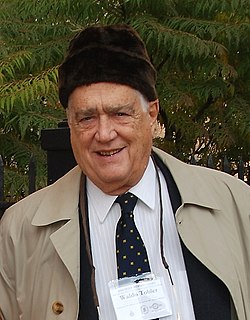 W
WWaldo Rudolph Tobler was an American-Swiss geographer and cartographer. Tobler's idea that "Everything is related to everything else, but near things are more related than distant things" is referred to as the "first law of geography." He has proposed a second law as well: "The phenomenon external to an area of interest affects what goes on inside". Tobler was an active Professor Emeritus at the University of California, Santa Barbara Department of Geography until his death.
 W
WYi-Fu Tuan is a Chinese-American geographer. He is one of the key figures in human geography and arguably the most important originator of humanistic geography.
 W
WPaul Vidal de La Blache was a French geographer. He is considered to be the founder of modern French geography and also the founder of the French School of Geopolitics. He conceived the idea of genre de vie, which is the belief that the lifestyle of a particular region reflects the economic, social, ideological and psychological identities imprinted on the landscape.